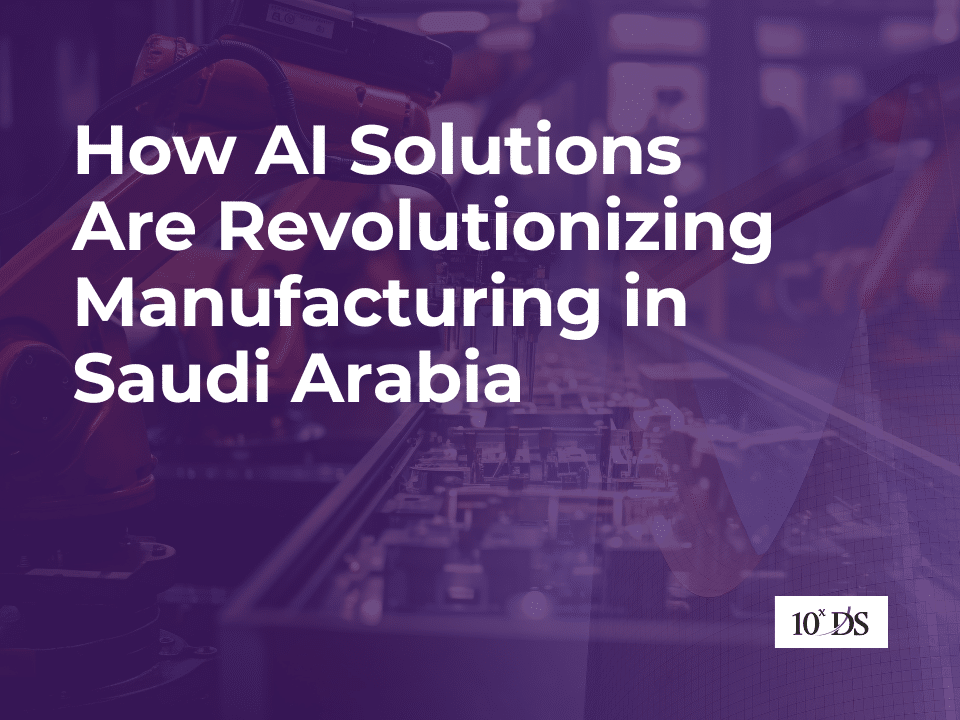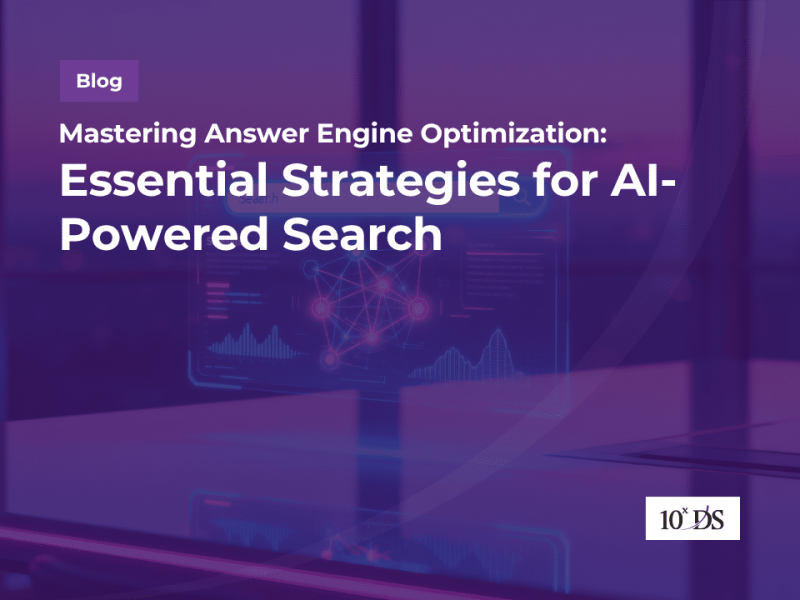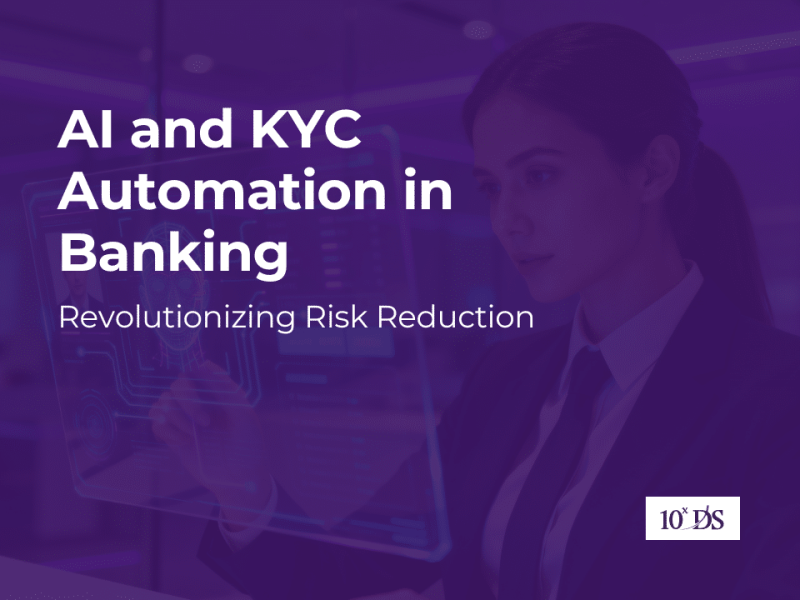
How AI Solutions Are Revolutionizing Manufacturing in Saudi Arabia
The manufacturing industry in Saudi Arabia is undergoing a transformative shift, driven by innovation, digitalization, and the Kingdom’s bold Vision 2030 strategy. One of the most impactful catalysts of this change is artificial intelligence (AI). From predictive maintenance to smart automation, AI solutions for manufacturing in Saudi Arabia are reshaping how factories operate, compete, and grow.
Historically known for its oil and petrochemical dominance, Saudi Arabia is diversifying into sectors like pharmaceuticals, food processing, defense, and advanced materials. Government initiatives such as the National Industrial Development and Logistics Program (NIDLP) are accelerating this growth by encouraging technological adoption and industrial innovation.
As these sectors expand, the need for efficiency, quality, and competitiveness becomes crucial. This is where AI steps in — offering tools and insights to make smarter, faster decisions across the manufacturing value chain.
How AI is Powering Saudi Manufacturing
1. Predictive Maintenance
In manufacturing, unexpected equipment failure can lead to costly downtime, lost productivity, and expensive repairs. AI-powered predictive maintenance addresses this challenge by analyzing real-time and historical machine data to identify patterns that precede equipment failure. These algorithms can forecast issues before they become critical, enabling timely intervention. As a result, businesses can significantly reduce unplanned outages, extend equipment life, and lower maintenance costs. In Saudi Arabia, industrial hubs such as Jubail and Yanbu — known for their concentration of petrochemical and metal processing plants — are increasingly integrating predictive maintenance systems. These technologies are particularly valuable in high-stakes environments, where continuous production and safety are paramount.
2. Quality Control with Computer Vision
Maintaining consistent product quality is essential in competitive industries like pharmaceuticals and food processing, where regulatory compliance and consumer trust are on the line. AI-driven computer vision systems are transforming quality assurance processes by using image recognition and machine learning to inspect products at remarkable speed and accuracy. These systems can detect minute defects, irregularities, or contaminants that human inspectors might miss. By automating the inspection process, manufacturers not only improve quality and reduce waste but also scale operations more efficiently. In Saudi Arabia, where quality standards are rising alongside export ambitions, this AI application is helping manufacturers meet both domestic and international benchmarks with confidence.
3. Supply Chain Optimization
An efficient supply chain is the backbone of successful manufacturing. AI technologies now play a critical role in optimizing supply chain functions — from forecasting demand and managing inventory to planning production schedules and routing logistics. AI algorithms can process vast datasets, including market trends, customer behaviors, and weather patterns, to make accurate predictions and adaptive decisions. As Saudi Arabia positions itself as a regional logistics and trade hub, the ability to move goods efficiently is vital. AI-driven supply chain optimization enables manufacturers to reduce costs, minimize delays, and improve service levels — ultimately strengthening their competitive edge in the Gulf and beyond.
4. Energy Efficiency
Energy consumption is one of the largest operational costs in manufacturing. In response, companies are turning to AI-powered energy management systems that track and analyze usage patterns to reduce waste and improve efficiency. These smart systems automatically adjust power consumption based on real-time production needs, weather conditions, and historical data. By optimizing how and when energy is used, manufacturers can significantly cut costs while minimizing their environmental footprint. This aligns perfectly with the goals of the Saudi Green Initiative, which seeks to promote sustainability and reduce carbon emissions across industries. AI’s role in energy management is not just about cost-saving — it’s a step toward cleaner, more responsible manufacturing practices.
5. Smart Factory Integration
The concept of the smart factory is quickly becoming a reality in Saudi Arabia, as the Kingdom pushes forward with its Vision 2030 agenda to build a high-tech, industrialized economy. Several leading Saudi companies — including industrial giants like SABIC, as well as emerging players in sectors such as automotive assembly, aerospace, and defense manufacturing — are actively investing in smart factory initiatives. These factories use advanced AI technologies to transform traditional manufacturing processes into intelligent, data-driven operations.
At the heart of the smart factory model is real-time monitoring, where AI systems continuously track machine performance, production metrics, and operational efficiency. This allows for immediate identification of bottlenecks, anomalies, or inefficiencies, enabling rapid response and correction. Instead of reacting to problems after they occur, factories can now operate proactively, maintaining higher productivity and minimizing costly disruptions.
Another key element is Robotic Process Automation (RPA), which automates repetitive and time-consuming tasks — such as material handling, assembly, or data entry — through intelligent software and robotic systems. In Saudi factories, RPA reduces labor costs, improves consistency, and frees human workers to focus on higher-value activities like process innovation and quality management.
One of the most powerful AI tools being adopted is the use of digital twins — virtual replicas of physical equipment, machines, or entire production lines. These digital models are fed with real-time data from sensors and IoT devices on the shop floor. By simulating different production scenarios, digital twins help engineers optimize factory layouts, test new processes, and predict how changes will affect performance — all without disrupting actual operations.
The integration of AI with the Internet of Things (IoT) is what truly enables a smart factory to thrive. IoT devices embedded throughout the production environment — such as smart sensors, RFID tags, and connected machinery — collect and transmit vast amounts of operational data. AI systems then analyze this data to drive continuous improvement, such as optimizing energy use, predicting demand spikes, or customizing production schedules in response to market shifts.
This connected ecosystem, often referred to as Industry 4.0, creates a dynamic and agile manufacturing environment. In Saudi Arabia, where the government is encouraging the digital transformation of industries, smart factory integration offers a pathway to global competitiveness. It empowers local manufacturers to increase output, reduce waste, enhance product quality, and respond more quickly to customer needs — all while supporting the nation’s broader goals of sustainability and innovation.
The Future of AI in Saudi Manufacturing
The potential of AI solutions for manufacturing in Saudi Arabia extends beyond operations. It will redefine workforce roles, shift decision-making to data-driven models, and enable hyper-customization of products.
To fully capitalize on this, collaboration is key:
- Government: Continue investing in infrastructure and R&D.
- Private Sector: Embrace AI pilots and upskill staff.
- Startups: Develop localized AI applications tailored to Saudi industry needs.
Conclusion
As Saudi Arabia races toward a diversified, knowledge-driven economy, manufacturing stands as a cornerstone — and AI is its engine of transformation. Businesses that embrace AI solutions for manufacturing in Saudi Arabia will not only thrive domestically but also compete on the global stage with smarter, greener, and more agile operations.


